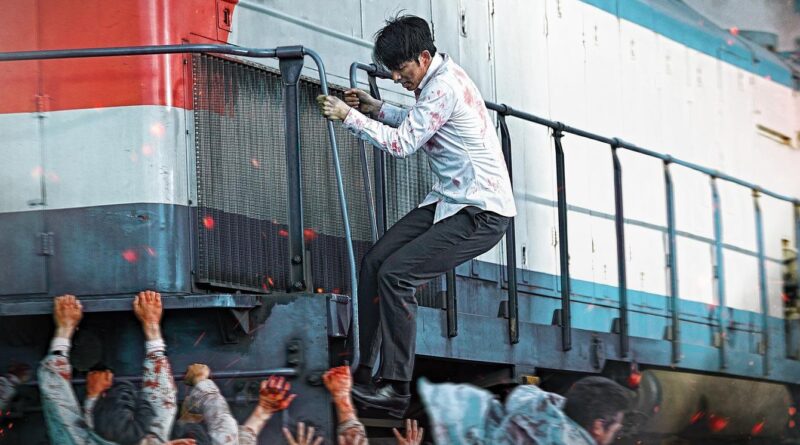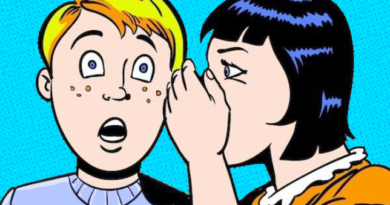Train to Second-Rate Remakes
If I really wanted to watch something about a mysterious illness breaking out and the government doing a terrible job of handling it, I would just turn on the news. Like, I do not think I have ever once in my life thought to myself, “Wow, I really want to watch a zombie movie.”
Train to Busan, although, is an outlier. When I go on a spiel about how monotonous I think the zombie film subgenre is, I’m certainly not talking about that one hour and fifty-eight minute masterpiece.
Originally released in South Korea and directed by Sang-ho Yeon, Train to Busan follows Seok-woo, his estranged daughter, and other passengers as they attempt to reach the city of Busan in order to evade a deadly zombie outbreak whilst trapped on a high-speed train.
Train to Busan completely transformed my expectations of a zombie film. It perfectly fused action, horror, and drama into one film, without needing to rely on any stereotypical campy zombie film tropes for greatness. It strayed from many classic choices amongst the trope, such as using the much more capsulized setting of a bullet train, rather than having the movie take place amongst the entirety of a city. The deaths, though heart-wrenching, were meaningful, and not just used as flimsy plot devices for one’s character development or split second shock value scenes. Train to Busan was truly a one-of-a-kind film. Or, at least, I thought it was.
Recently, I caught wind of plans to recreate a Westernized version of the South-Korean film. Cue an elongated disappointed sigh from me. If there is one thing Hollywood is good at, it is producing unwanted and unwelcome remakes of beloved Asian media. Case in point, 2013’s less than stellar reimagination of Old Boy, and Netflix’s downright deplorable live-action depiction of Death Note in 2017. Just thinking about Train to Busan suffering the same fate sends a chill down my spine.
Not only would a westernized remake of Train to Busan most likely not do the original justice, it would also completely eradicate what makes the original film special. The majority of the setting takes place on a high-speed bullet train, which are typical throughout South Korea, and serves as an original landscape for a zombie movie. The West, the United States specifically, primarily relies on cars for transportation. Removing the whole train aspect of a movie called Train to Busan kind of defeats the entire purpose of the movie, don’t you think? I mean, what else are we going to call it? Uber to Miami? It does not have the same ring to it, that is for sure. If the remake does keep the train characteristic of the original film, most likely it would take place in the subways of New York or another large city. Yes, it would serve the same purpose, but it just would not be the same. I mean, have you seen the New York subway? Not only that but, the film also simultaneously serves as a metaphorical critique of South Korean government and society.
“But this time it will be in English!” As a wise, Oscar-winning man once said, “Once you overcome the one-inch-tall barrier of subtitles, you will be introduced to so many more amazing films.” Limiting yourself to media only in languages you know will prohibit you from discovering a whole world of art beyond what you could have comprehended. Subtitles are not the worst thing in the world, I promise you will not die if you have to read and watch something at the same time. It’s good for your motor skills, come on.
The original Train to Busan film is stellar, eulogized as a staple in contemporary Asian media, and as soon as you watch it, you will be able to see why. However, when it seems like all Hollywood wants to do to showcase its appreciation for foreign films is do their own Americanized version of it, it begs the question of whether Asian movies and television are only worth recognizing in the West when Hollywood wants to do a poorly-done retelling. It is almost condescending, the way the West feels as though they can out-do any foreign original, as if they cannot fathom the idea of something being great without their contribution. (In true Western fashion, I suppose.) Is it really that hard for people to consume and enjoy foreign media without feeling the need to Americanize it?
Train to Busan does not need a Western remake, and neither do any other foreign films. No need to fix what’s not broken, as the old proverb says. There is nothing that a remake could accomplish that the original did not already. Other than making it terrible. Foreign films are great enough on their own and do not need a watered down rendition of them in order to be recognized.




